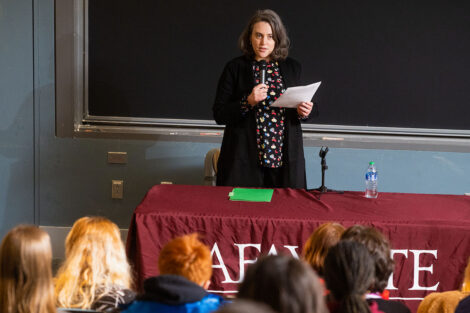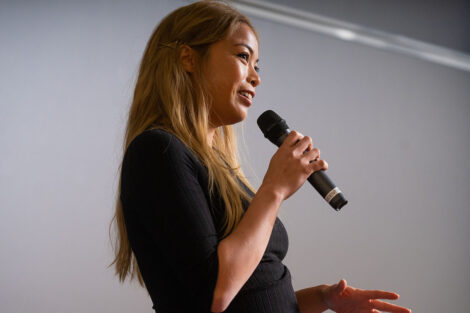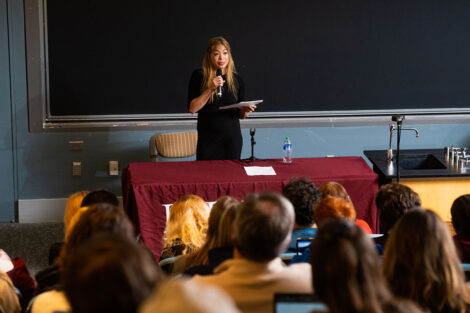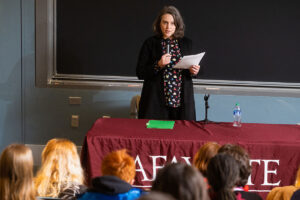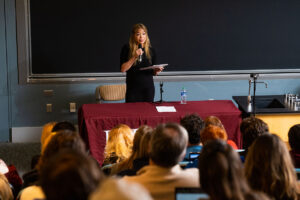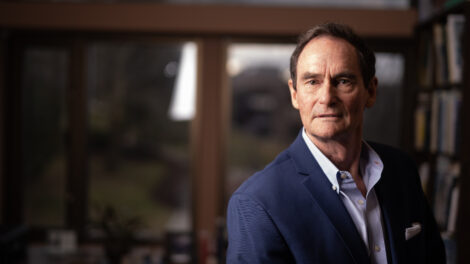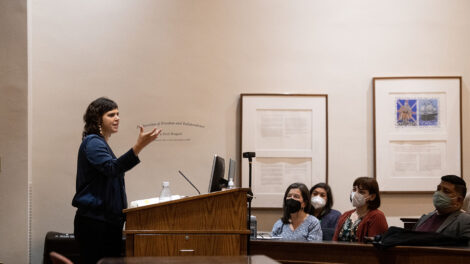Acclaimed author Jia Tolentino speaks about the negative impacts of capitalism and optimization
For thousands of years, the human race has been in a state of constant stimulation. From the Stone Age to the present, mediums have differed dramatically but the impact on our lives has slowly evolved to an overwhelming feeling of taking in more and more. How do you resist information flowing at you at the speed of light? How do you repel the desire to perform at a rapid pace, or challenge the systems that are only based on maximizing profit at the expense of your own physical and mental health?
This was the topic of author and staff writer at The New Yorker Jia Tolentino, who delivered the John L. Hatfield ’67 Lecture, “Against Optimization,” on Feb. 22.
“The fears aren’t new but the medium that produces them is. We have been moving for thousands of years, slowly and then rapidly, and now at an exponential rate into a state of constant stimulation,” explained Tolentino during the lecture. “I think the malaise many of us feel is rooted in this abundance and the hidden consequences of it to other people, to the planet, and to our souls.”
Tolentino spoke about what it means to be against optimization and what we would substitute in its place. Instead of living in a perpetual state of crisis, there actually is a version of doing less. This never-ending cycle of negotiation includes asking yourself, “What obligations are necessary and what are not?” Thinking continually about what is important is a key answer.
During a Q&A session, several students asked Tolentino for advice ranging from how to discuss this topic with parents, to how to deal with feelings of being overwhelmed in college. Tolentino, who spoke about her own parents and their thoughts on education versus her feelings on the issue, advised students to learn self-care habits early. The very nature of spending four years at college presents the best scenario to test strategies and tactics that will ultimately ensure better mental health outcomes.
“The earlier you learn these habits, the harder they stick. … You guys already have the opportunity to break yourselves of the deep existential compulsions to render yourself visible every second,” she explained.
Tolentino is the former deputy editor at Jezebel and a contributing editor at The Hairpin. She earned her undergraduate degree at University of Virginia and her MFA at University of Michigan. In 2020, Tolentino received a Whiting Award as well as the Jeannette Haien Ballard Prize. Her work has appeared in The New York Times Magazine, Pitchfork, and other publications.
View the recording of the lecture.
